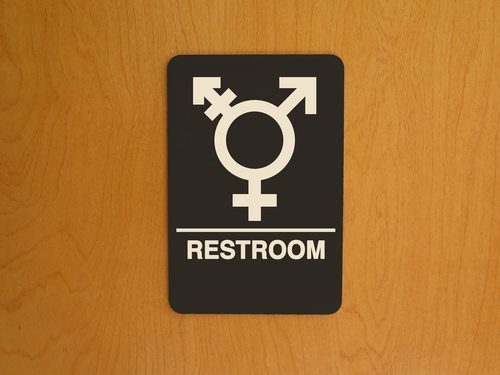Does your workplace have a policy on the use of gender-specific bathrooms by transgender employees? Should it? Unless you’ve been living under a rock the past year, you are aware of the controversy about gender-specific restroom use, particularly as it pertains to people who identify with a gender different from the sex assigned to them at birth. Various states across the nation have taken it upon themselves to determine which people can use which bathrooms, and this has caused a flurry of lawsuits, court decisions, and media attention. Federal government agencies, including the EEOC, OSHA, and Office of Personnel Management have developed policies and positions on gender-specific bathroom use in the workplace. The EEOC has issued a fact sheet to offer employers guidance on bathroom access rights for transgender employees under Title VII of the Civil Rights Act of 1964.
Please visit the EEOC’s Website for more information on sub-regulatory guidance.
Protection of Gender Identity
Title VII of the Civil Rights Act of 1964 applies to all governmental and private employers with 15 or more employees. Title VII prohibits employment discrimination on the basis of race, color, national origin, religion, and sex. Sex includes pregnancy and discrimination based on expectations or stereotypes of how someone of a certain gender should look or act. This means that discrimination based on gender identity, sexual orientation, or transgender status, while not specifically prohibited, may still violate the prohibition on sex discrimination.
What’s an Employer to Do?
According to the EEOC, an employer cannot:
- Deny an employee equal access to a common restroom corresponding to the employee’s gender identity;
- Condition this right on the employee undergoing or providing proof of surgery or any other medical procedure; or
- Restrict a transgender employee to a single-user restroom.
An employer also can not hide behind state law is contrary to Title VII. South Carolina does not have a law restricting bathroom use, though bills on this matter continue to be introduced to legislation. Employees should not be asked to provide any medical or legal documentation of their gender identity to have access to gender-appropriate bathrooms. Additionally, under OSHA, employees generally cannot be limited to using a bathroom that is unreasonably far from the employee’s worksite.
Educational institutions, covered by Title IX rather than Title VII, are required to give transgender students restroom and locker access consistent with their gender identity.
Broader Protection for Transgender Federal Employees
The Office of Personnel Management is the federal agency that sets policy on government-wide hiring procedures and develops, tests, and implements new policies that relate to personnel issues for federal government employers. The OPM has made broad suggestions for federal government agencies to decrease gender identity discrimination in the workplace. The OPM suggests that employers review their anti-discrimination policies to make sure the policies protect employees regardless of their gender identity or gender non-conformity. The OPM also suggests that employers evaluate and eliminate gender-specific dress and appearance rules. Managers and coworkers should use the name and pronoun appropriate to the gender the employee is now presenting at work both to the employee as well as in communications with others regarding the employee.
Your workplace needs to be free of discrimination, including discrimination on the basis of gender identification. If you have questions about gender-identification discrimination, bathroom policies, or your obligations under Title VII, please contact an experienced South Carolina employment lawyer at Gignilliat, Savitz & Bettis, LLP.






